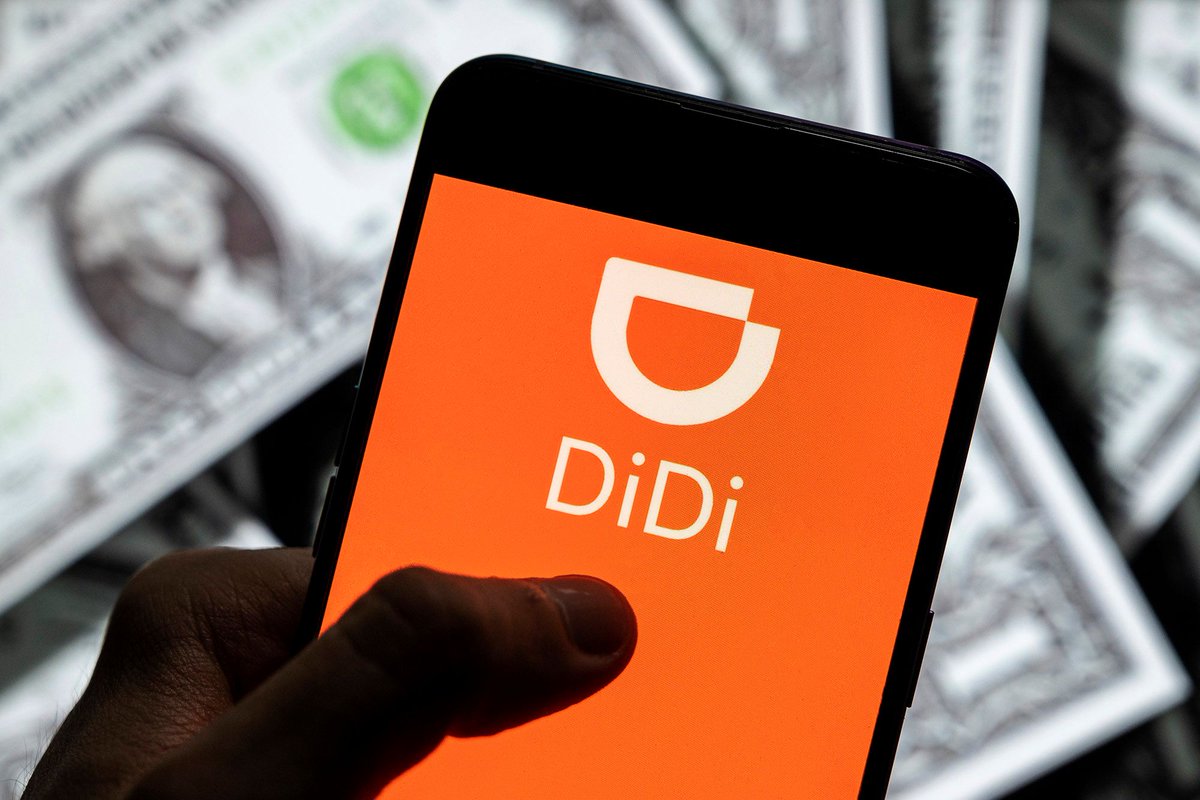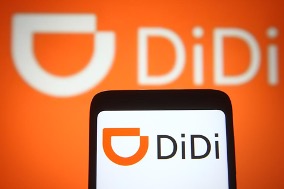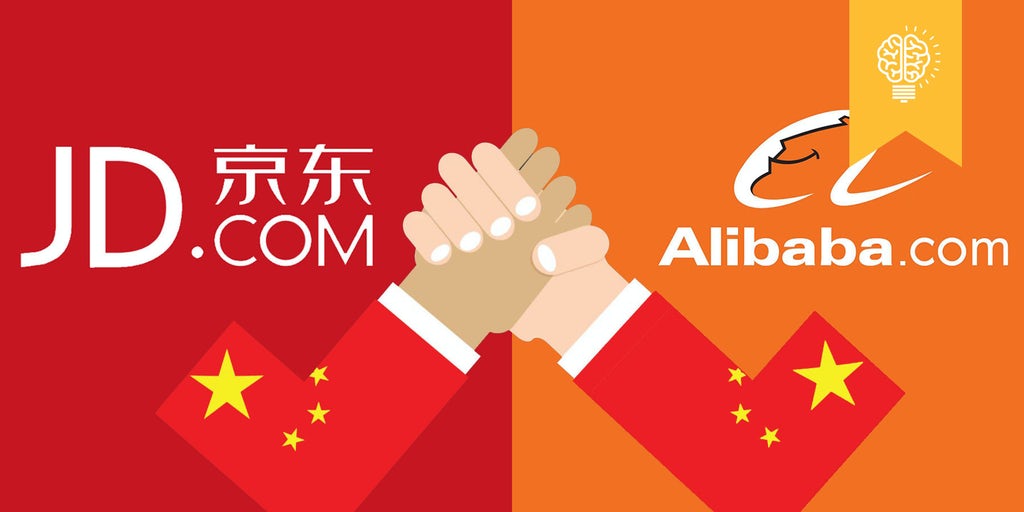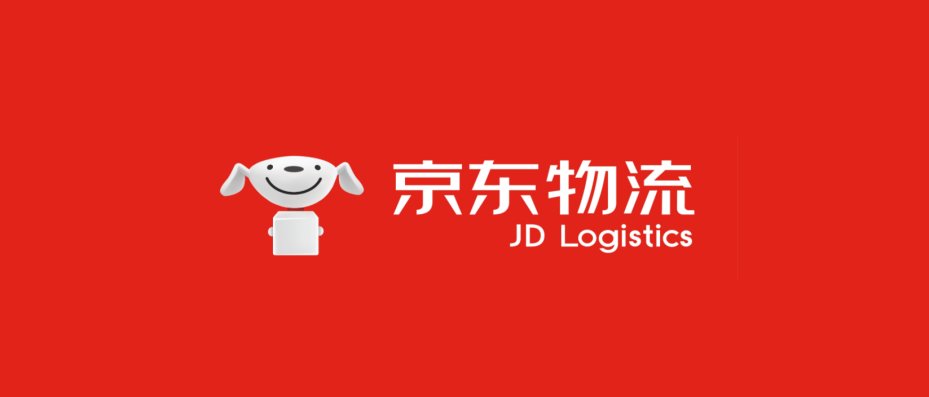
When $DIDI first started, $DIDI did not have enough drivers, because taxi drivers in china do not know about $DIDI . To acquire more drivers, $DIDI employed some sneaky tactics. Here is a EASY thread on some of the sneaky tactics $DIDI has used.
Let's get started 👇👇
Let's get started 👇👇

1. $DIDI's biggest competitor, Yao Yao Ride Sharing, was the biggest ride sharing platform in Beijing before 2013. Yao Yao like $DIDI had limited drivers. Yao Yao advertised on TVs to invite taxi drivers to Yao Yao’s event, where Yao Yao would install the Yao Yao app for drivers.
$DIDI after noticing Yao Yao’s advertisement, immediately added a very short $DIDI's advertisement that plays right after Yao Yao’s advertisement. The advertisement goes like this: ‘please call or message xxx-xxx, where you can immediately download the $DIDI app’.
Most taxi drivers at the time could not distinguish the difference between Yao Yao and $DIDI. Therefore, after watching the $DIDI advertisement immediately after Yao Yao’s, most taxi drivers called $DIDI and downloaded $DIDI’s app instead of Yao Yao’s.
2. Quite sneakily, if a driver has installed both the $DIDI and Yao Yao’s app on his/her phone, the $DIDI app will even actively prompt ques asking the driver to uninstall the Yao Yao app.
3. $DIDI also tried to expand $DIDI’s fleet offline. Despite $DIDI’s effort, $DIDI was unable to have a $DIDI promotion stall at the Beijing airport or any large train stations where many taxis stopped by.
$DIDI only got a chance to have a $DIDI stall at Beijing West station, where taxi usually only stopped by for 1 minute and leave immediately. Therefore, there was no point for $DIDI to have a promotion stall.
$DIDI thought that the only possible way for $DIDI to promote the $DIDI app was to walk straight up to the taxi drivers and download the $DIDI app for them in under a minute.
At that time, smart phone was not as widely adopted. Many taxi drivers did not know whether they were using a smart phone or not. Therefore, it was hard for $DIDI to identify which taxi driver could potentially be a $DIDI driver and install the $DIDI app within a minute.
$DIDI later thought of a clever idea. $DIDI workers would ask the taxi driver whether he/she was using a Nokia phone. $DIDI realized that if the driver was not using a Nokia phone, 90% of the time, the driver was using a smart phone.
Therefore, if the taxi driver said he/she was not using a Nokia, $DIDI’s worker will immediately grab the taxi driver’s phone and install the $DIDI app on it and giving the taxi driver a $DIDI promotion brochure. The entire process was done in under 30 seconds.
$DIDI, by going through potential $DIDI drivers one by one, slowly built up $DIDI’s fleet and successfully met $DIDI’s goal to acquire 10 thousand drivers in the winter of 2012.
4. Another $DIDI's competitor Bai Mi Da Che was very aggressive in acquiring new taxi drivers onto their platform. Bai Mi’s workers would install a Bai Mi Pad in the taxi, solving the hardware problem as some taxi drivers do not use smartphones.
The Pad could solely run the Bai Mi app and other apps could not be downloaded. After $DIDI knew about Bai Mi’s Pad strategy, $DIDI decided to send out their engineers, one by one onto every Bai Mi’s car, changed the code on the pad and download the $DIDI app on the Pad.
5. When $DIDI was trying to acquire drivers, the China Transportation Committee required ride sharing platform to verify the identity of the driver before the driver could start operating for a ride sharing platform.
With most platforms, most drivers need to verify their identity with their ID card. However, $DIDI decided to ‘make the process easier’ by not requiring an ID card verification, but only required the taxi drivers’ name, taxi company, taxi service card number and number plate.
Therefore, the identity verification test with $DIDI was easier to be passed compare to other platforms, thereby attracting more drivers onto the $DIDI platform.
6. The China Transportation Committee legislated that it was illegal to charge a rider a premium during peak hours. $DIDI disregarded the legislation, and charges a ‘premium’ during peak hours. This retain and acquire more drivers for $DIDI as the drivers can earn a higher wage.
7. When $DIDI first started off, $DIDI did not have enough customers, and drivers were angry because they thought that $DIDI was working with telecom company trying to charge them high ‘data fees’ when they opened the $DIDI app.
$DIDI without any customers, decided to hire ‘fake customers’ and ask them to take $DIDI all day. This successfully retained the few hard earned $DIDI drivers when $DIDI was just starting off. END//
Thank you for reading this thread! I hope the thread was interesting and allowed you to have a peak at $DIDI's sneaky strategy. If you like the thread, please consider liking and retweeting it! It really does help me out a lot! Thank you for all your support!
I will also be releasing a more comprehensive thread on $DIDI later today, so stay tuned!
You guys may be interested in this thread!
@mukund
@Innovestor_
@EugeneNg_VCap
@MT_Capital1
@NIONenad
@HonestInvesting
@mukund
@Innovestor_
@EugeneNg_VCap
@MT_Capital1
@NIONenad
@HonestInvesting
• • •
Missing some Tweet in this thread? You can try to
force a refresh


















